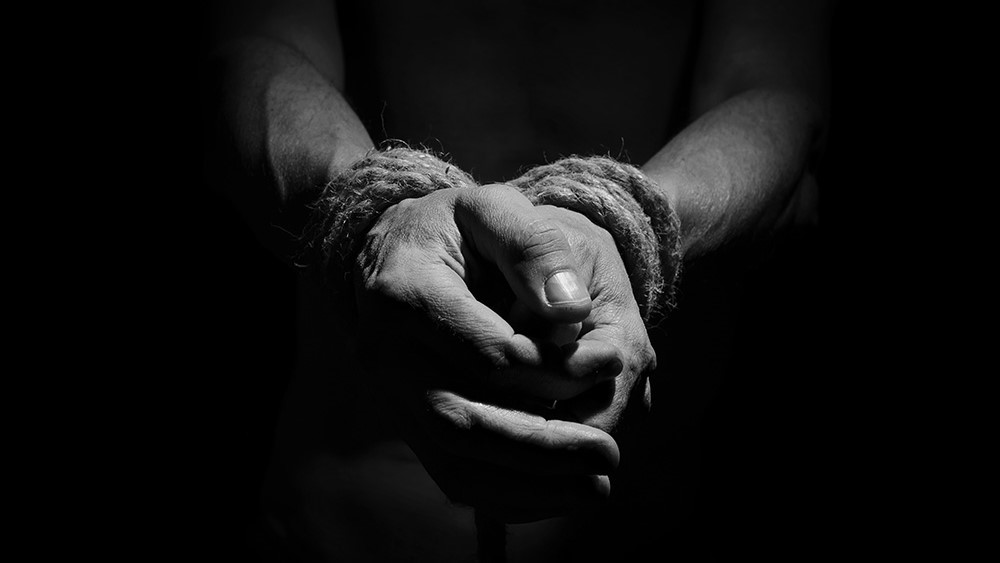John 8:33-36: They answered, “We are offspring of Abraham and have never been enslaved to anyone. How is it that you say, ‘You will become free’?” 34 Jesus answered them, “Truly, truly, I say to you, everyone who practices sin is a slave to sin. 35 The slave does not remain in the house forever; the son remains forever. 36 So if the Son sets you free, you will be free indeed.”
- When Jesus suggested that “the truth will set you free” (John 8:32), some were VERY offended. “We are offspring of Abraham and have never been enslaved to anyone,” they said. “How is it that you say, ‘You will become free?’” As we know a large part of Israel’s history was their enslavement in Egypt, which the Lord delivered them from. Even in Jesus’ day, Israel was under the dominion of Rome! So, what does their claim tell us about those who made it? What does it tell us about the spiritual naiveté of unsaved people in general?
- In verse 34, what kind of ‘slavery’ is Jesus pointing out? In what ways did sin enslave us when we were unbelievers? In what ways does it enslave us as believers? Why does Jesus use the slave/master analogy to describe the sinner’s relationship to sin? How is that a fitting comparison?
- Consider the following points about slavery and talk about how they reflect the sinner’s relationship to sin before salvation: (1) slaves have no will of their own; they are in bondage to the will of their master; (2) a slave is powerless to resist the will of his/her master; and (3) a slave is wholly powerless to free him or herself.
- Now consider how our salvation changes our relationship to sin. Romans 6:18 says that believers “have been set free from sin and have become slaves to righteousness.” So, how does the indwelling of the Holy Spirit change our options? Because of these ‘new’ options, what are some of the things Paul encourages believers to do (Romans 6:4, 6, 10-11, 12-13)?
- 2 Corinthians 5:17 is a well-known passage – so much so that it’s become somewhat of a cliché: “Therefore, if anyone is in Christ, he is a new creation. The old has passed away; behold, the new has come.” How is this verse true of you? What does it mean to be a ‘new creation’? Besides your eternal destiny, what has God changed in or about you? What does Paul mean by “the old” that “has passed away”? What does he mean by “the new” that “has come”? And what does it look like, practically, to actually “walk” in that ‘newness’ (Rom. 6:4)?
- Slavery is a difficult word for us today, and rightly so. ‘Slavery’ seems to be the polar opposite of ‘freedom.’ Yet, the Bible is clear that, in a spiritual sense, EVERYONE – believer and unbeliever alike is a slave to something or someone. Surprisingly, being a ‘slave of Jesus Christ’ was a common self-designation for the earliest believers. In fact, they proudly declared themselves to be the slaves of Jesus. Paul opened his letter to the Romans by identifying himself as a “slave of Jesus Christ” (1:1). He began his letter to Titus by calling himself a “slave of God” (1:1). James starts his epistle: “James, a slave of God and of the Lord Jesus Christ” (1:1). Jesus Himself often reminded His disciples, literally, that “a slave is not greater than his Master” (John 13:16, 15:20, Matthew 10:24, etc.). While many translations say “servant” or “bond-servant,” they’re invariably translating the Greek word ‘doulos,’ which is “the most abject, servile term used by the Greeks to denote a slave.”1 So, how does this make you feel? First, can you honestly describe yourself as a “slave of Jesus Christ”? How or why? Second, is that a mark of shame for you, or a badge of honor? Explain. What do you think it looks like, practically, to be a “slave of Jesus Christ? If it’s to obey His words without question, do you do that (John 13:12-17, Luke 6:46-49, 11:28, James 1:22)?
- Finally, in John 8:36, Jesus says, “if the Son sets you free [from slavery to sin], you will be free indeed.” Free? Free to be slaves of someone else? Are Christians ‘slaves’ who are ‘free indeed’? How would you explain this seeming contradiction? Can we be slaves and free at the same time?
1 Wuest, Kenneth, Wuest’s Word Studies from the Greek New Testament (Grand Rapids: Eerdmans, 1997), pp. 11–14.

